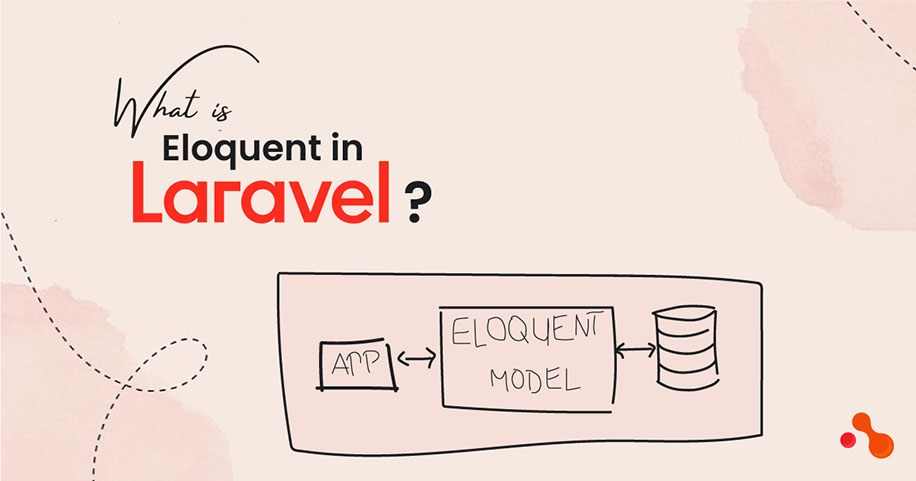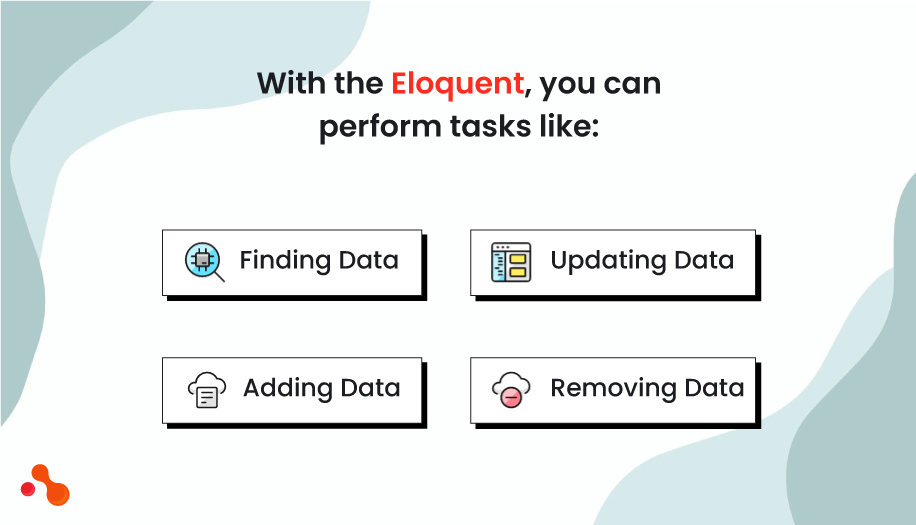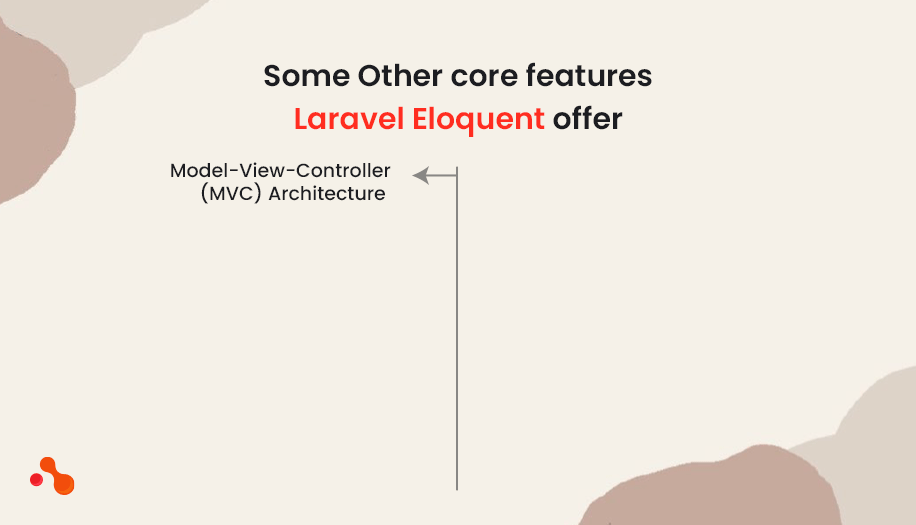Table of Contents
What is Eloquent in Laravel?
Introduction

Eloquent is an essential built-in feature of Laravel. An ORM (Object-Relational Mapping) makes developer life easy by handling database records efficiently using object-oriented techniques.
Eloquent helps to interact with database tables easily by giving developers a simple approach to insert, update and delete the records.
For example, suppose you are working in a big Library, and in the library, you have different types of books. Each book has its own identity, like unique titles, authors, and genres. Think about it, what would happen if every book had a common name but with different information, and someone told you to find the specific information from the books? It would be a nightmare for you.
Eloquent helps manage your database better. For example, if you have a database of your books with various categories; Eloquent will help query the database and optimize the search process. With Eloquent, you can create a special list, called a "model," for each type of book in the library. For example, you could have a "Book" model representing the library's books.
Just like, when you hire laravel developer the development process is easy, in the same way Laravel Eloquent is a cool feature that helps you interact with data effortlessly. Using this model, Eloquent provides you with simple and powerful ways to perform query actions on the books in the library and interact with data:
With the Eloquent, you can perform tasks like:

Finding Data
Eloquent provides powerful search capabilities for retrieving specific data from the database. Developers can use Eloquent to find records that meet specific criteria.
Adding Data
With Eloquent, developers effortlessly add new data to the database. They can create new records by specifying the necessary information, such as a user's name and email or product details. Eloquent takes care of the process of storing this data in the appropriate database table.
Updating Data
Eloquent simplifies updating existing data in the database. Developers can locate a specific record and modify its attributes. For instance, they can update a user's email address or change the price of a product. Eloquent handles the process to perform updates in the database.
Removing Data
Eloquent allows developers to remove unwanted data from the database easily. They can specify the criteria for identifying the records they want to delete. For example, they can delete a specific user or remove all products from stock. Eloquent takes care of deleting the corresponding records from the database.
Thanks to Eloquent, Laravel development services are experiencing rapid growth due to the valuable benefits, a helpful feature that makes Laravel development faster and easier.
Some other core features Laravel Eloquent offers

Model-View-Controller (MVC) Architecture
Eloquent is a key component of the Laravel framework, which follows the MVC architectural pattern. Eloquent helps in the "Model" part of MVC by providing a way to represent and interact with data models in the application.
Database Table Relationships
Eloquent makes it easy to define and manage relationships between different database tables. Developers can establish relationships like one-to-one, one-to-many, many-to-many, and polymorphic relationships. All these translate to simplify querying related data and enable efficient data retrieval.
Query Builder
Eloquent provides a fluent query builder that allows developers to construct database queries using a chainable API. It offers methods to specify conditions, select columns, order results, join tables, and perform various other query operations. The query builder makes it simple to build complex queries while maintaining readability.
Eager Loading
Eloquent supports eager loading, which helps reduce database queries and optimize performance. Developers can specify relationships to be eagerly loaded, allowing related data to be retrieved in a single query instead of separate queries for each record. Reducing the number of database queries and improving efficiency.
Events and Observers
Eloquent provides a way to hook into model events, such as creating, updating, and deleting records. Developers can define event listeners (observers) that perform additional actions before or after these events occur. This feature enables Laravel development companies to add custom logic, perform validations, or update related data when certain events happen.
Accessors and Mutators
Eloquent allows developers to define accessors and mutators for model attributes. Accessors format attribute values when retrieving them, providing customized representations of data. Mutators allow modification of attribute values before saving them to the database. These features help in data manipulation and presentation.
Pagination
Eloquent offers built-in support for paginating query results. Developers can easily paginate large result sets, dividing them into smaller, manageable chunks for display. This feature is useful when working with long data lists and helps improve performance.
Soft Deletes
Eloquent provides soft delete functionality, allowing records to be "softly" deleted instead of permanently removing them from the database. Soft deleted records can be easily restored if needed. This feature offers a convenient way to handle data deletions without losing data permanently.
These are the basic features of Laravel Eloquent. If you were planning to learn Laravel, you would be learning more complex and efficient features.
Need a website quickly?
Launch your website quickly with our expert team. Utilize the full potential of Laravel. Reserve your complimentary 30-minute call and start your seamless Laravel development journey today.
Final words
Eloquent in Laravel is a powerful ORM (Object-Relational Mapping) that greatly improves how developers interact with databases. It offers a convenient and expressive way to work with data, allowing for efficient querying and manipulation of database records. By providing features like model relationships, query building, event handling, and soft deletes, Eloquent simplifies complex database operations and makes code more maintainable.
It enhances developer productivity by promoting clean and expressive code, making managing and working with data in Laravel applications easier.
